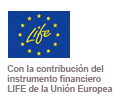The Minister of Agriculture, Food and Environment of Spain, Ms Isabel García Tejerina, stated that the government will continue to prioritize the generation of economic activity and employment in sectors that contribute to the decarbonization of our economy. In the same way, she guaranteed that the obligations acquired under the Kyoto Protocol will be fulfilled. The strategy to be pursued to attain these objectives will be based on an appropriate negotiation at the COP 21 Conference in Paris, to be held in December 2015, where a new International Treaty should be agreed to replace the Kyoto Treaty and establish a new global framework to fight climate change from 2020 onwards. To this end, the European Council, last October, approved the Energy and Climate Framework with three binding objectives, namely to reduce CO2 emissions at domestic level by 40 %; to achieve 27% of renewable energies in energy consumption and to achieve a 27% improvement in energy efficiency, which will strengthen the negotiating position of the Community delegation. Consistent with this policy framework, the Ministry’s environmental commitment is based on the promotion of the Clima Projects, which facilitate investments in projects that reduce greenhouse gas emissions, generating employment. The Environmental Promotion Plans (PIMA) that encourage low carbon economic activities, such as the renewal of the commercial, agricultural and transportation car fleet, as well as the Roadmap for Diffuse Sectors, with the aim of reducing GHG emissions in sectors such as housing, waste, etc. In addition, the creation of the Carbon Footprint Registry allows companies to record their carbon footprint, facilitating the creation of sinks and quantifying the progresses made in economic sectors.
SPAIN’S COMMITMENT IN THE FIGHT AGAINST CLIMATE CHANGE IS STRONG
- INTIA presents “The impact of the Navarre Canal in the agri-food sector of Navarre” during the Agricultural Conference Horizon 2020
- 1st Technical Workshop of the LIFE+ RegadiOX Project

